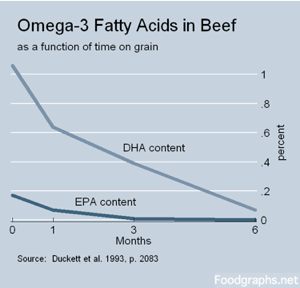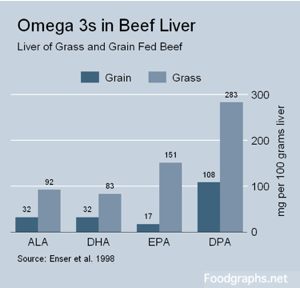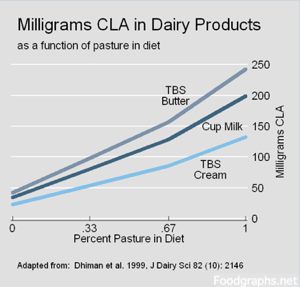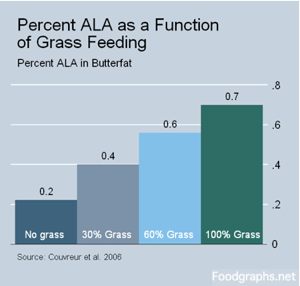|
Pastured Eggs
The Community Chickens project by Mother Earth News and Grit, proves that and egg is not an egg. Eggs from hens raised on pasture are far more nutritious than eggs from confined hens in factory farms.
Read the findings here.
Grass fed meat and dairy
An important element of sustainable farming and providing nutrient dense foods for customers, is moving animals back onto pasture and reducing grain intake.
This is a process that takes time (i.e. building pasture health and diversity) that has to be carefully managed by the farmers for optimal outcome, but the longterm benefits to animal, farmer and food are worthwhile.
Nutritional benefits of grass fed products are displayed below.
Following graphs courtesy of http://www.foodgraphs.net/food/grassfed.html
Grass fed beef:
Omega 3 fatty acids decline in the fat of steers as a function of their time on grain. The longer on grain, the lower the Omega 3s.

Grass fed beef liver:
Liver is a fatty food and the effects of grass feeding are impressive in this food item.

Dairy products from cows on pasture:
The content of conjugated linoleic acid (CLA) in dairy products increases as a function of pasture in the cow's diet.

Omega-3 ALA, butterfat, and pasture:
The content of the Omega 3 fatty acid alpha linoleic acid (ALA) also improves as pasture in the cow's diet increases, though the content is low regardless.

Press & Posts
June 23, 2009 - Sustainable Dairy Farmer Shows Big Gain
|